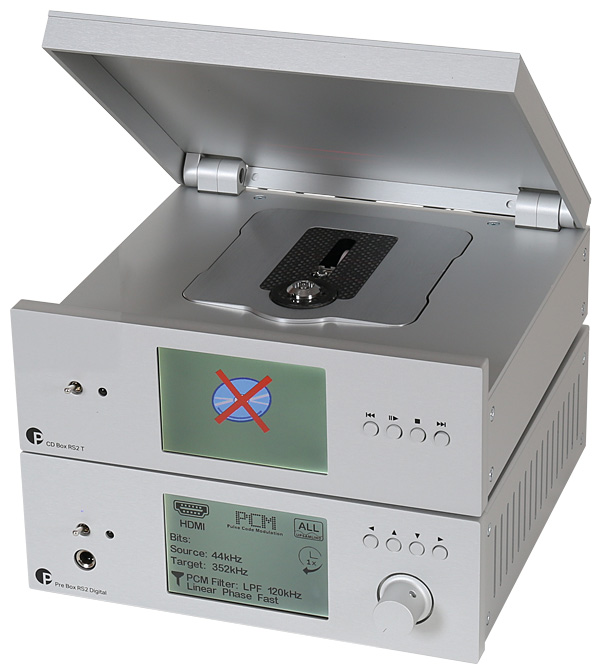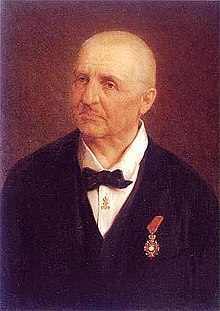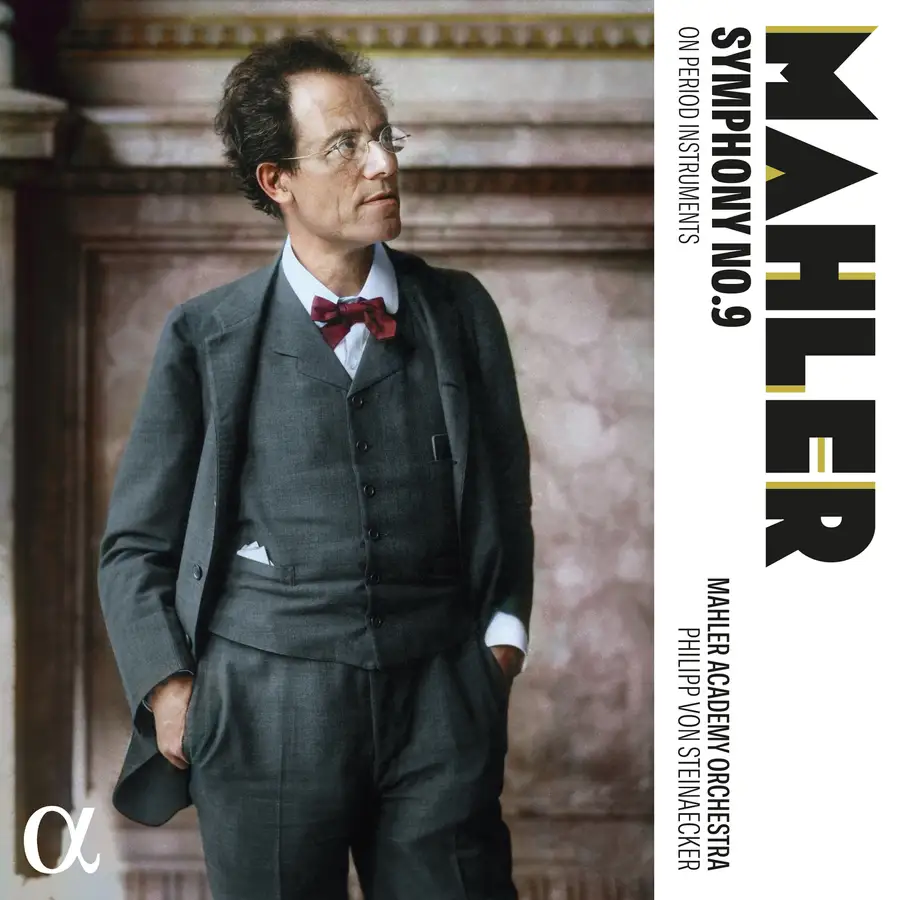 Click pic to enlarge.
Click pic to enlarge.NY Diary (19-21): Audio Influencers - Myopic Journeymen
Talk Digital: CD is Here to Stay
In my last article (just roll down) I voiced my long-time belief that the CD is not dead. Soon after, I read something that supports that, which I shall relate to you further down, after I (once again) get one of my pet peeves out of my system.
CD Is Not Dead Despite Hi-End Audio Journeymen Doing Their Best To Kill It!
Although I am a die-hard analogue man, like my friend Andy, I also maintain CDs can sound very good, if done right (which it mostly is not these days).
How many times have you read about the death of CD in magazines and online forums? Since the advent of digital, now just a little short of three decades, we have read heap after heap of hyperboles that come with each digital "advance", and since the advent of "hi-res" files, number crunching has become the norm, and the red book CD is totally dismissed. After no less an industry figure than the always self-serving Ivor Tiefenbrun of Linn declared CD dead and stopped making CD players, some others followed suit. Everyone got into DACs with USB (I2S never really caught on commercially). When reviewing the few new CD players, the reviewer always says it is one of the last. Hegel even named its CDP "Mohican".
The argument has been, files sound better than CD players. Theoretically, sure, the CD is nothing more than digital files encoded on a plastic disc, and the laser is used to decode. Why not handle the files directly? But like most things in audio, theoretical superiority doesn't always translate into better sound. In HK, in home visits I have heard a lot of Computer Audio, including very expensive systems, but I can safely say I have never heard what I knew CDs ought to sound like (if played my way; e.g., non-oversampling, early CD players, Sparkler). It can be decent, but not special - a lack of finesse, if you will. Some of these systems are so complicated it is laughable. Many tweaks read like how to get your computer running after it suffers a crash.
The problem is, audio is as much art as science. Art, because one has to be perceptive in hearing and come to terms with the intangible aspects of the hobby. Most reviewers, even if they fulfill the first prerequisite, struggles with the second. It seems audio professionals have all become pseudo-scientists, believers in progress and numbers (both electrical measurements and price as measurement of quality), and audiospeak is exactly that, an arrogant dismissal of history and past excellence. In art, we would never say Warhol is better than Van Gogh, Philip Glass a better composer than Bach. But in audiospeak, CD has to be better than LP, Hi-Res Files better than CD, etc. I ask you a simple question, you tell me why sometimes a black and white photo strikes at the heart more than a vibrantly colorful digital one? Why do editing programs have a function that allows you to turn color into black and white?
The Numbers (Digits) Game has also brought about a whole new class of Audio Journeymen, people skilled in computers and proficient in digital theory but not in critical listening. Most of the people in many online sites that review mostly earphones and DACs fall into this category. People who only listen to earphones and desktop systems have become influencers and manufacturers cater to them. Of course, every new headphone (or DAC) is better than the last one; just keep them coming, right? In my opinion, this is highly unfortunate and damaging to the credibility of audio reviews, indeed to the hobby, even to the internet as information away from mainstream. Don't you think, the more search engines perfect their AI, the less we can find minority views?
It has not always been like this. Earlier, critics are enlightening. Stereophile deserves praise for putting online a lot of the writing of J Gordon Holt, and those reviews are great to read. The man had integrity, and there were a lot more negative reviews then (much more precise than the vague and faint praise in fashion now), including many early CD players (when compared to analogue). Yes, digital got better eventually, but now audio journalism just seems like a big party, a reviewers club that replaces true enthusiasm with hyperboles.
Given my high regard, even preference, for early CD players, you may ask how come they were not well regarded when they first came out? I nail this down to the generally poor associated equipment of that era. That was when tube equipment was in eclipse, and not many solid state amps sounded good. Take my first serious system as an example, the B&K pair is definitely only so-so in quality (story here). Today, equipment are generally better, and afford us opportunities for re-appraisal.
The State of The CD
The CD is not dead, far from it. Like vinyl, it may become a niche market. With classical music, ArchivMusic actively re-issues CDs, and they are not doing badly. Mind you, I had long been right with LP. In the late 80's and early 90's, when people were discarding LPs like mad, when prices were ridiculously low, we vinyl die-hards bought more than we could hold on to (to our significant other's chagrin). Yes, LP and CD will always be kinda niche, but a permanent niche growing in size and influence. Just like vintage equipment, physical media shall always have a place in people's heart that no digital advance can usurp.
Discogs is a large Music Marketplace, and if you read this this article in its official blog, you shall see many musicians and professionals still think physical media is useful. One likes it for the same reason we older folks (and now hipsters) like LP; another postulate CD sales will increase dues to the high price of new LPs. Indeed, if I want an album, I always opt for the cheaper CD than vinyl (even if available).
CD Sales may even have increased. This report says: "Music marketplace Discogs has released its Marketplace Analysis & Database report for the first half of 2019 and it revealed some surprising data about online music retail.
The report showed the continued popularity of the vinyl format with consumers, with sales rising 3.03% year-over-year with over 4.3 million records purchased. More surprisingly, the data compiled in the report suggests that the demise of the compact disc has perhaps been exaggerated with the format seeing growth of 23.6% for the first half of the year..."
Am I surprised? No. As I have written before, as the market moves fully towards streaming, physical media will become more attractive. This was exactly echoed by one of the interviewees in the Discogs Blog.
A New CD Laser Mechanism and A New Transport!
HiFi News is possibly my favorite HiFi magazine (except for Ken Kessler). In HK, I religiously read it in the library. Here, I don't have that luxury, so I resort to periodically read their website (which loads some articles). Imagine my surprise when I read about a new Laser Mechanism that took millions of dollars to develop! Do read the whole article, including the interview with Pro-Ject's CEO.
The StreamUnlimited's CD-Pro mechanism is used in the new Pro-Ject CD Box RS 2 T/Pre Box RS2 Digital. This is a truly interesting article. Pro-Ject was a major factor in the vinyl renaissance. Now, can it help usher in a new era for CD? Well, maybe not for the general public at that price! However, I think there will be more hi-end CD players coming that employ this mechanism. And, perhaps, sometime in the future we will see "trickle-down" products? Anyway, as Pro-Ject is popular, this is a good sign for the longevity of CD.
BTW, I'd love to be able to hear this pair, but I doubt it. Incidentally, the pair looks like a modern update of a Micromega Micro pair, the Microdrive + Variodac (see pic here; the Variodac is a Microdac with preamp function; I still have them in HK!). Would I trade my pair for the Pro-ject? Maybe, maybe not.
Vinyl is here to stay. Direct Drive has made a great comeback (sorry, Ivor). There are many miracles. Don't count anything out. Don't be presumptuous. These are great lessons for the ubiquitous audio journeymen. No, the CD is not dead. Not now, and not any time soon.
HiFi News is possibly my favorite HiFi magazine (except for Ken Kessler). In HK, I religiously read it in the library. Here, I don't have that luxury, so I resort to periodically read their website (which loads some articles). Imagine my surprise when I read about a new Laser Mechanism that took millions of dollars to develop! Do read the whole article, including the interview with Pro-Ject's CEO.
The StreamUnlimited's CD-Pro mechanism is used in the new Pro-Ject CD Box RS 2 T/Pre Box RS2 Digital. This is a truly interesting article. Pro-Ject was a major factor in the vinyl renaissance. Now, can it help usher in a new era for CD? Well, maybe not for the general public at that price! However, I think there will be more hi-end CD players coming that employ this mechanism. And, perhaps, sometime in the future we will see "trickle-down" products? Anyway, as Pro-Ject is popular, this is a good sign for the longevity of CD.
BTW, I'd love to be able to hear this pair, but I doubt it. Incidentally, the pair looks like a modern update of a Micromega Micro pair, the Microdrive + Variodac (see pic here; the Variodac is a Microdac with preamp function; I still have them in HK!). Would I trade my pair for the Pro-ject? Maybe, maybe not.
Vinyl is here to stay. Direct Drive has made a great comeback (sorry, Ivor). There are many miracles. Don't count anything out. Don't be presumptuous. These are great lessons for the ubiquitous audio journeymen. No, the CD is not dead. Not now, and not any time soon.

















No comments:
Post a Comment